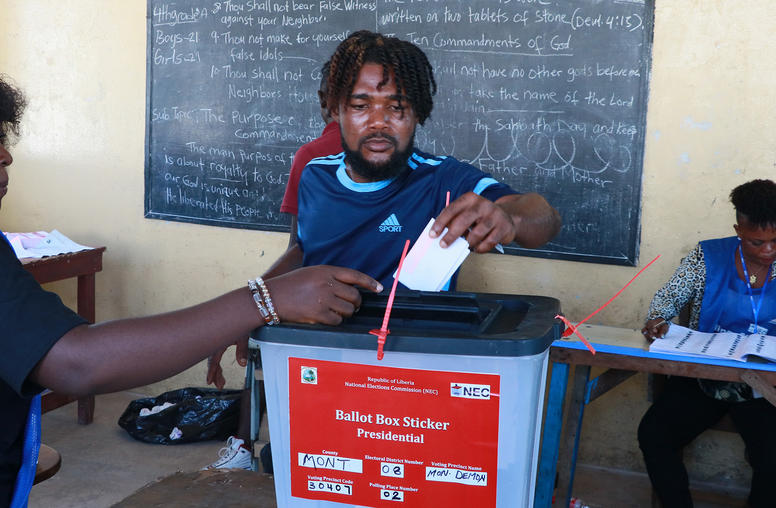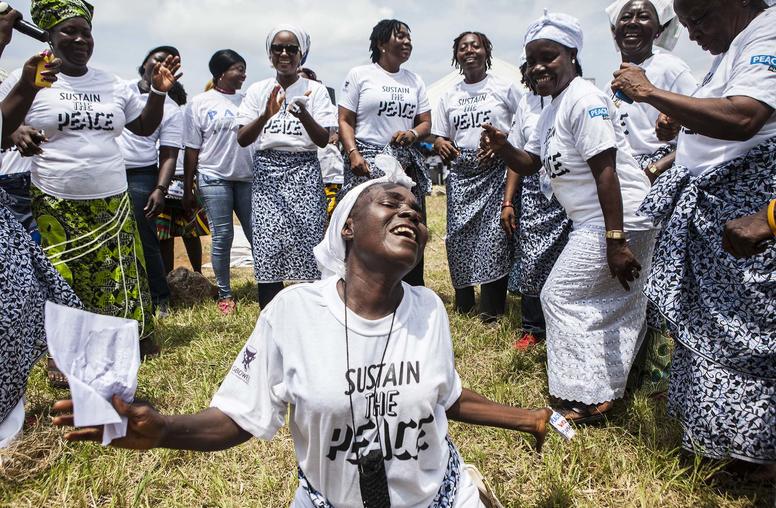Integrating Women into Liberia's New Security Forces
Public event co-sponsored by USIP's Liberia Working Group and The Initiative for Inclusive Security
Liberia's history of armed conflict and military dictatorship mandate a renewal of civil-military relations. As such, Liberia's security sector reform not only includes the rebuilding and retraining of the national army and police, but also endeavors to reach out to women to join its ranks—the Sirleaf administration has set a goal of 20 percent women in the police and military. Female officers are particularly instrumental in combating gender-based crimes, which experts stress are at very high levels as a result of Liberia's long civil war. However, women face unique challenges in joining the security forces—such as a lower levels of educational attainment and negative experiences with past security forces.
- How are the Liberian government and international community addressing these challenges?
- How are women being encouraged to join the security forces?
- How can women's involvement in security sector reform help change the image of the security forces?
Archived Audio
To listen to audio or to view video, please click on the links provided below. You also can right click on the links and choose "Save Target As" or "Download Linked File." This will save the file to your computer and then allow you to play it in your media player directly. More Audio Help.
- Listen to the audio from this event.
1:21:52 - 14.7MB
Speakers
- Cerue Garlo
Director of the Women's NGO Secretariat of Liberia - Ciatta Clarke
Executive Assistant to the Minister of Defense - Asatu Bah Kenneth
Deputy Inspector General of the Liberian National Police - Dorina Bekoe, Moderator
U.S. Institute of Peace
Additional Contributors
- Precious Mitchell
Steering Committee, the Security for Women through Advocacy Coalition - Abla Williams
Deputy Commissioner on Immigration and Naturalization - Regina Sokan-Teah
House Committee on National Security


